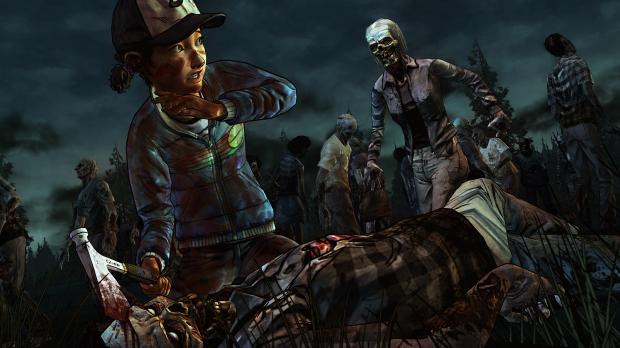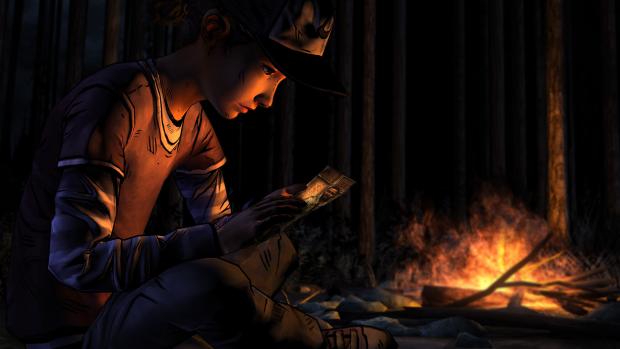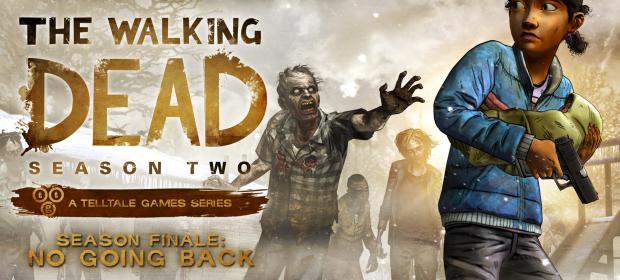Picking up immediately where episode four left off, No Going Back starts at a rate of knots, and never really lets up for the two hours it takes to get through. It’s full of emotion, showing humanity at its worst and, surprisingly, its most fragile, too. For all the talk that season two has been weaker, Telltale Games have saved the best for last, and created a triumphant finale.
The following review assumes you have played the previous episodes, though spoilers are (as always) kept to a minimum. Due to the cliffhanger ending of episode four, we’ve used screenshots from previous episodes so as not to risk spoilers.
Something that The Walking Dead universe revolves around (be it the book, TV show, or the game) is humanity. After a while, you realise the walkers themselves aren’t the real threat, but the ego, needs and wants of the people are the most dangerous. We’ve all struggled, transitioning from Lee to Clem – but finally, exhaustingly, episode five gets it right. Now, more than ever, this is your Clementine.

There is so much sadness here, such tremendous bleakness, that it’s painful to endure for the most part, but there are moments in No Going Back that, shockingly, made me smile. The gruesome action of previous episodes (though not gone completely) takes a back seat to the true brilliance: the characters. One particular scene early on is so out of character for the series, that it stands out – and that reminder of human vulnerability comes through; it’s the centre of it all. We’re all different; we’re all the same. A better writer might compare it allegorically to something else going on in the world right now. So much pain, so much trauma. But what if we just took a break and all got along, just for a moment?
Sentimentality be damned, there’s a little girl at my control, and her choices, my choices have the most real impact on the series that we’ve ever seen. Playing through this finale multiple times, it’s apparent that although some decisions don’t change the real outcome, they do change how Clementine is perceived.
One such choice dictates a stark shift in how a character feels toward our girl, and the larger decisions are incredibly bold on Telltale’s part, and will prove to be either a complete masterstroke, or something that’s almost impossible to please people with. Mark my words: by the time you finish with season two, you’ll feel more attached to Clem than ever. Her world has been shaped by you, forever.

Of course, there’s a moment where it all goes to shit, because there always is. Sure, Zombies will pop up here and there to permeate the world with the dreaded reminder that everything is dangerous and nobody is safe. Yeah, there are fight scenes, but the way it all comes together is like a delivery on a promise.
But let’s not pretend otherwise, often the choice in The Walking Dead has been illusionary. For the first time I can recall, this time, they’ve nailed it. The closing moments are drastically altered by how you play, by who you are. There are five different ways to end the season, three of which behold outcomes completely different to one another. What this means is that season three might just be the most ambitious project Telltale have ever set themselves up for.

VERDICT: Looking back over season two, there’s something odd about how we as players have endured a rollercoaster ride, just as our Clementine has. The swinging emotions have beaten us around the head, like we’re a boxer just waiting for the knockout blow to come, to release us. But we can’t close our eyes, because there’s work to be done.
It started nervously, almost scared of what it was, but at the end of season two, you’ll go to whomever you hold dear, and you’ll squeeze them just that little bit harder than usual. They’ll ask you why, and you won’t answer. There’s a little girl to be saved.

SUPERB. This is the mark of greatness, only awarded to games that engage us from start to finish. Titles that score 9/10 will have very few problems or negative issues, and will deliver high quality and value for money across all aspects of their design.
Review code provided by publisher.





